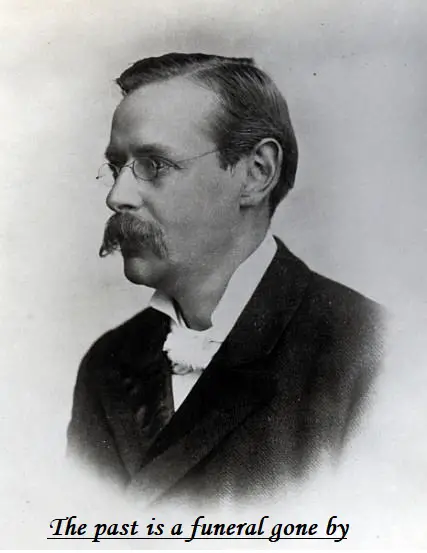Early Life
Sir Edmund Gosse was born in London on September 21, 1849, to Philip Henry Gosse, a naturalist and Emily, an illustrator was the only child to his parents. His parents who were both deeply committed to a small Puritanical Protestant Sect, The Plymouth Brethren wished for Edmund to be a preacher and educated him thoroughly through the Bible.
After his mother died early of breast cancer he was left alone with his father who sent him to St. Mary Church where he grew up while developing his literature interests. He later gave an account of his childhood in his autobiography “Father and Son” which is supposedly his most famous book and is tagged as “The first psychological biography.”
The career of Edmund Gosse
Gosse did not attend the university but he still somehow managed to secure a job in the cataloguing department of British Museum from 1865-1875 and was also a translator for the Board of Trade for around 30 years from 1875 till 1904. He was acquainted with pre-raphaelites like Alfred Lord Tennyson and was friends with Robert Browning, Thomas Hardy, A.C. Swinburne and Henry James.
Gosse was a prolific literary historian and critic who introduced the work of Henry Ibsen and other continental writers to the English Readers. His literary criticism covered among other topics literature from the 17th century. “Studies in the Literature of Northern Europe”(1879), “Seventeenth-Century Studies: A Contribution to the History of English Poetry”(1883), and “English Literature: An Illustrated Record”(1903) are some of his publications.
Despite his own lack of academic qualifications, Gosse embarked on a lecture tour in America during 1884-1885. He also lectured on English Literature at Trinity College, Cambridge University from 1885 to 1890.
He also wrote literary histories like “18th Century Literature” and “Modern English Literature” as well as biographies of eminent writers like Thomas Gray, John Donne, Ibsen and other writers.
In 1904, Gosse became a librarian at The House of Lords Library and he enjoyed this position till his retirement. He also wrote a column for the London Times on Literature on a weekly basis.

Edmund Gosse’s Poetry
Gosse’s poetry includes “On Viol and Flute”; “New Poems”; “Firdausi in Exile and Other poems”; “In Russet and Silver”; “The Autumn Garden”; “Madrigals”, “Songs and Sonnets” and “The Collected Poems of Edmund Gosse”. Gosse also wrote poems in French Forms like Villanelle and Sestina which are very intricate. And as critic Amanda French would say, “Edmund Gosse was most responsible for introducing the French forms, including the villanelle, into Anglophone poetry.”
He also authored a play “King Erik, a tragedy” in verse. He communicated his discovery of French Forms in an essay for the Cornhill Magazine titled “ A Plea for Certain Exotic Forms of Verse.”
Edmund Gosse’s Marriage
Gosse married Ellen Epps in 1875 and had three children. Although being happily married for 50 years he deeply had some homosexual desires but refused to acknowledge them. He finally did acknowledge John Sydmonds in 1890 thus confirming his homosexuality.
Acknowledgement
Gosse was given an honorary M.A by The University of Cambridge in 1886 and he was knighted in 1925.
The novel “Oscar and Lucinda” by Peter Carey which won numerous awards like The Booker Prize in 1988 was partially inspired by Gosse’s book “Father and Son”.
Gosse’s “Father and Son” was also the basis for a television play named “Where Adam Stood” by Dennis Potter.
The lecture series Gosse published as From Shakespeare to Pope (1885) was the focal point for a critique of an unscholarly belletrist, John Churton Collins. Collins charged Gosse with factual errors, misleading generalization, and a kind of literary charlatanism that he felt undermined the nascent discipline of literary studies in the article he published in the Quarterly Review of October 1886.
Father and Son
Edmund Gosse, an English Translator, a literary historian, a poet and a critic is known today for one classic text, Father and Son, which gives an account of his life in his parental Plymouth Brethren home. The generic name gained attention from the start as to was the book the autobiography of the famous poet Edmund, the son or the biography of Philip, the father.
The book depicted an inter-generational conflict as his loving but demanding father forced the Brethren rituals and traditions on Edmund to secure his soul for eternity and his evangelic mother prohibited him access to fiction fearing it would become a distraction from Christian service.
Edmund recounts his escape from the dominion of his puritanical father after the death of his mother with grace, irony and wit. The book portrays a classic story of literary rags to riches.
Demise
Gosse died on 16 May 1928 but he will always be remembered for his mastery in literature.